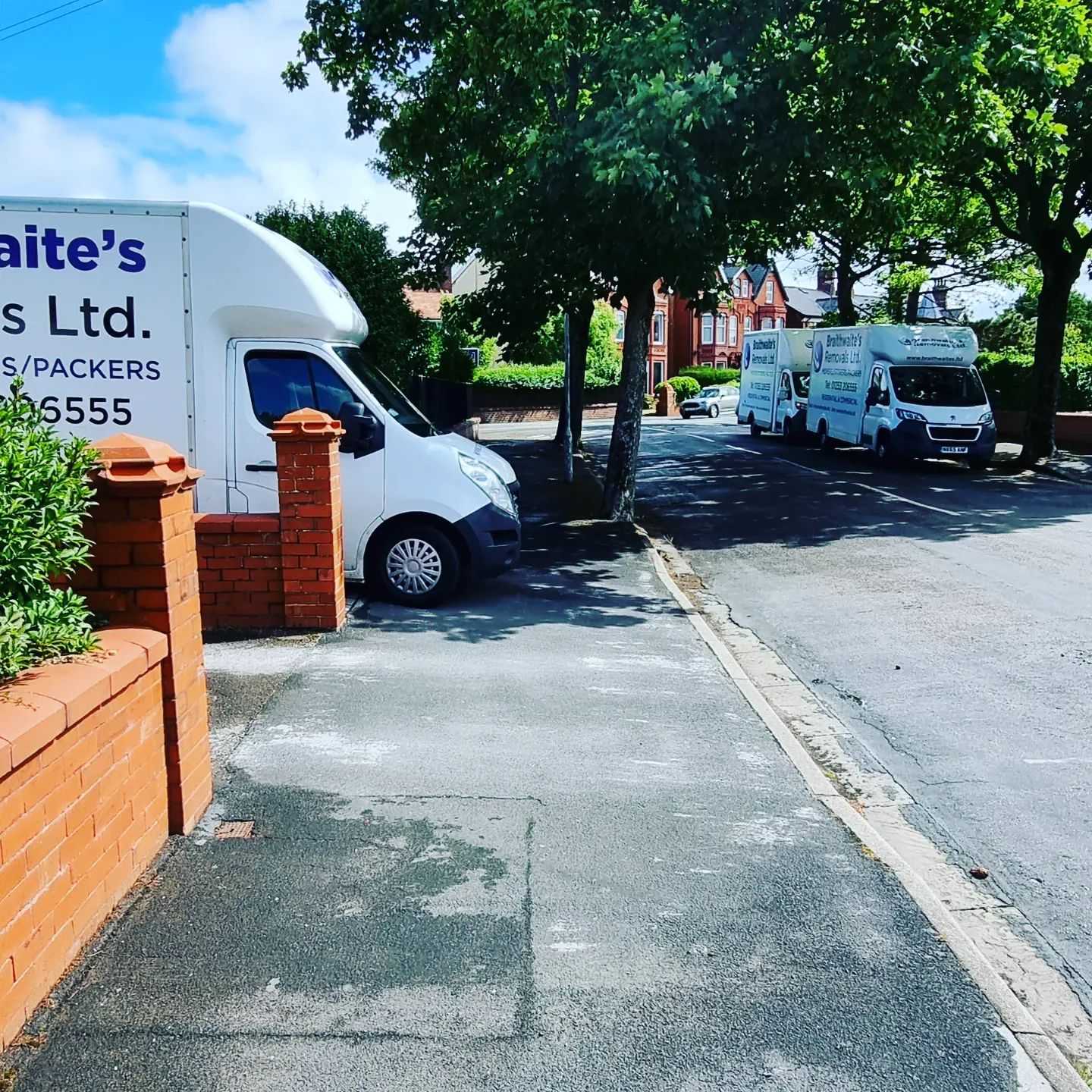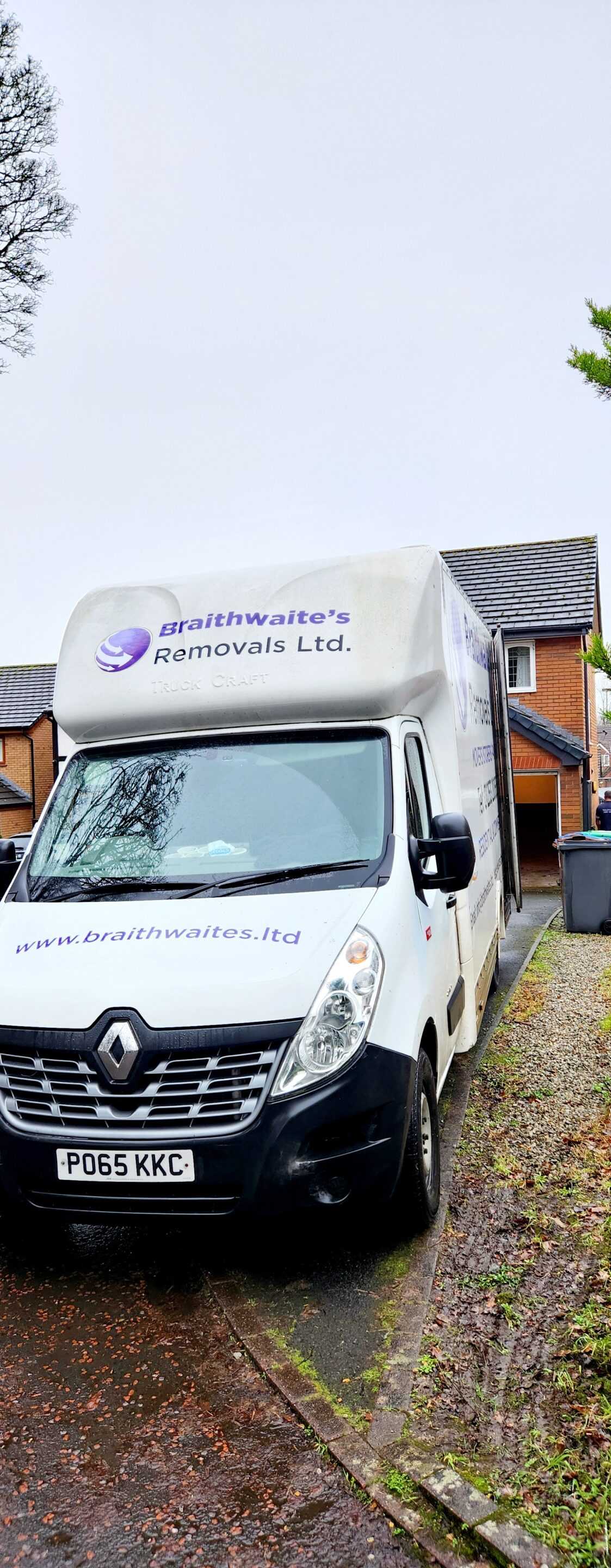Let’s talk more about how to prepare for removals day. As exciting as moving to a new home is, it is also a stressful period for many people. The only thing that can mitigate this enduring chaos is good preparation – especially if it’s preparation for potential mistakes or accidents. The process of preparation should begin once the residential move is confirmed with your moving company and estate agent, ending before the day of the move itself.
The essential component of preparation – one that will spare you time, money and nerves – is organisation. This is the one factor that will spell the difference between a hectic and scrambled transition versus one that is calculated and smooth.
To ensure that your move is as headache-free as possible, take some time to consider whether each of the points listed below can lighten your load somewhat.
Big Decision: DIY vs. Removal Company
First things first, you must make a final decision on whether you wish to book a team of top-rated professionals, or if you will do it yourself. Each option has its pros and cons, dependent on your particular requirements, and it is this choice that will impact how the residential move will unfold.
Therefore, you must be duly aware of your own needs, priorities and proclivities that will hint at the best approach for you in terms of finances, availability, risks, and your stress threshold.
If you choose the DIY route, rent out the largest van you can find (the standard UK driving license allows you to drive a van weighing up to 3.5 tonnes), preferably one with a lower kerb height or a tailboard ramp for loading and unloading.
Moving from a small and uncluttered ground-floor apartment, a van would be the right call for you, along with a couple of mates to help out on the day of the move. You could get it done for as little as £100. Bear in mind that you will likely have to make a few back-and-forth journeys, and the last one to return the van, so this option is most practical for a short-distance move.
To empty a household – bedrooms, bathrooms, kitchen, garden, attic – is an overwhelming task. You don’t know how many possessions you own until you’ve begun packing. Just picture picking up each item, carrying it through an obstacle course (stairs, narrow hallways, odd walls, etc.), and loading it into a van without breaking your precious items or your precious back. Now do it all over again, and hurry up because there’s a deadline!
A removal company, on the other hand, is there to lift much of the burden that a residential move entails. From packing to unpacking, the whole venture can be trusted to those who do it daily.
If you prefer to hire professionals, start getting quotes early and compare them with several firms. Look for services that meet your needs and match your budget.
Use a calendar to schedule daily tasks
The core component of organisation is knowing when to do what. Using some kind of schedule will ensure that you do not waste any time. Once the tasks are committed to a physical medium, instead of remaining as scrambled thoughts in the mind, you can proceed with greater serenity.
It is also helpful to prioritise your move-related jobs and tackle the most important things first, rather than messing about with the little things. Despite having a set deadline, some brains just love to procrastinate until kingdom come, so it’s important to stay on top of it by knowing your priorities.
Inventory all your possessions
One of the first jobs on your schedule should be to write up a list of your possessions. A daunting task but you would be worse off without it.
Here are a few benefits of having a complete inventory:
- You get to group everything before packing
- A packing list to help identify the contents of each box
- Easier to track your belongings
- Get a more defined costs estimate from the moving company
List the items that are valuable or fragile
Most things you can throw in a box, while others demand more consideration either because they are worth a lot more or because they are fragile. It is a good idea to pack these items first and keep them in their own section. Use bubble wrap to wrap anything brittle, place it into a box with extra packaging, and then label the box on all sides as fragile.
It would be best, if possible, to move precious and fragile belongings in your car rather than in a van. You would have to discuss it with your moving company, but it is by no means a guarantee that their insurance plan will cover items that exceed a certain value, though they will be glad to pack them for you.
Get rid of unwanted belongings
When you’re moving house, you do not want to pay extra for the job of moving stuff that you will end up throwing away later. A week or two before the move, you should consider what you can let go of.
Make sure you clear items from everywhere – the attic, the closet, all the rooms, the shed, and the garden. You’d be surprised just how many hidden items there are and how many of them you really can do without.
Your furniture was right for your old home, but are you certain that it still has a place in the home you’re moving to?
It is customary for the previous owner to provide a blueprint of the property, so you can use the measurements to work out whether your furniture is right for the setting. You should go back to your new property to double-check that the measurements are, indeed, correct and there is space for your couch, appliances, desk, etc.
If the items are not suited for the measurements, then you sell them, give them away to friends, family, a charity, or just drop them off at the nearest dump. Bear in mind, though, that if you start this task early, you will have more time to sell unwanted goods for a better price instead of giving them away or dumping them.
Begin by going through your inventory sheet and single out the items that, for whatever reason, are not worth moving. Then set up a pre-move yard sale, take them down to a boot sale, or take clear pictures of them and post them on a website like Gumtree or a page on Facebook.
Selling off some of your items will not only make you money but also save you money because the final bill from the moving company will be largely dependent on the overall weight of your inventory. So the lighter the load, the lighter the cost!
Start packing
Whether it’s a big house or a small apartment, this is the task that is most important in making a smooth transition from one property to another. There are three key things to consider:
- Begin packing as early as possible
- Prioritise the packing of more difficult rooms
- Stuffing your entire household into boxes is not a one-man job – get some help, whether it’s from friends or professionals
You can’t be efficient enough when it comes to packing and unpacking your belongings, so here are some ways to make the job easier for yourself:
- Stock up on quality packing materials – bubble wrap, boxes, scrap paper, tissues, packing tape, etc.
- Protect individual items from scratching by using layers of crumpled scrap paper to separate them
- Divide the heavier items between boxes
- Do not overstuff boxes
- Label each box to indicate the right way up
- Write on each box the box’s contents
If this is too bothersome a task, then consider getting your removal company to handle it. You would be surprised how little packing costs would add to the overall cost of your move. This will not only speed up the packing process but also ensure that the items are packaged correctly and provide better protection for your items. Most companies that provide packing services should be able to help you unpack, too.
It will vary from household to household, but for professional removal firms, it generally takes between half a day to two days to pack your items and a day or two to deliver them. Don’t forget that we offer our own packing service to make the day run even smoother, you can find more information on that right here.
Tend to your children
Moving homes is a monumental transition, and it may feel as if the earth is shifting under your feet, but things only get quakier if you’re moving with young children.
It is best to tell your children early about the move and give them time to deal with it. Be sure to remind them of the positive aspects of moving to a new home: will they get a bigger bedroom? Is there a great garden with a swing?
It can be helpful to include your child in the preparations and allocate small tasks for them. Let them clean their bedroom, pack some of their own stuff, and label and decorate the packing boxes. This will grant them a greater sense of agency over their world and make the transition much easier.
If your child is still a toddler it would be best to keep the little one away from the hustle and bustle of the moving process entirely.
Tend to your pets
Cats and dogs, much like humans, are very sensitive to routine, so you should take care to keep these intact during the packing process.
Dogs love nothing more than a good routine. They generally know when it is time for food, walks, rest when they’ll spend time with you and when they’ll be alone. This is what makes a dog feel secure and in control of its environment.
Cats are often worse at coping with a move than any other household pets. Cats find comfort and peace in territorial familiarity and routines, with much of it revolving around pheromonal scents. They spread their pheromones throughout their home by rubbing their face on things, so one thing you can do is buy a spray or a plug-in diffuser to infuse the air with pheromones that will help the cat feel safe and calm (do this 24 hours before you begin to make any serious changes to the cat’s environment). And remember to keep their routine the same while you pack.
Tend to your plants
Be sure to inform your removal company that you’d like them to transport your plants. Because plants are delicate and break easily some companies prefer to not deal with them. As with any precious or fragile belonging, it’s best if you could move the plants yourself, as you’ll certainly be more cautious with them.
Before you collect all your plants together, inspect each of them for any bugs or diseases. You don’t want the infections to spread. Furthermore, remember that it is now illegal to import and export plants without a phytosanitary certificate (PC). This is to avoid the potential risks of introducing new pests or diseases into the environment. If in doubt, contact the Animal and Plant Health Agency.
To prevent any leakage or excess weight, avoid watering your plants up to three days before the move. And you might want to prune the bulkier one into a more compact shape before the move for less risk of long limbs breaking off.
Notify the relevant companies of the move
Before moving to your new residence, you will need to inform certain companies and organisations about the change:
- Utility providers
- The council, including for household/garden waste and your electoral role
- Your bank, insurance, pension, and credit card companies
- Your employer
- Doctor, dentist, optician
- HMRC/DSS offices
- DVLA
The day before moving day
With the moving day just around the corner, it can be difficult to stay focused. By now you must be exhausted! Remain attentive as you go through your final checklist, ensuring that things are in order before the movers get there.
You should unplug and disconnect all electronics 24 hours before moving day. Defrost the fridge. Keep the washing machine door open so it doesn’t begin to mould.
Prepare a kit that contains the essentials that you are going to need over the next couple of days. This box should be easily accessible at all times and should include:
- Medicine
- Essential electronics – laptop, mobile phone, tablet
- Snacks
- Beverages
- Pet food
- Clothes
- Toiletries
- Clean towels
It’s finally here: moving day!
Now that you’ve packed everything up and sold or donated what you don’t need, you are ready to ditch the old place and embrace your new home. To help you manage this action-packed day here is are tips that will help you cross the finish line in one piece.
Wake up ahead of schedule
Regardless of whether the move is taking place in the morning, afternoon, or evening, wake up early and go through your checklist again – there are always some things that manage to slip through the cracks. For everything to go according to plan and avoid overstressing, you want to give yourself enough time to be as prepared as you can be.
Pack away whatever is left
Conclude your packing by putting away any toiletries, dishes, snacks, or clothes. It must all go with you now. If it’s something that may melt or spoil on the way, then just bin it.
Inspect each corner of your home one last time
You still have some time before your movers arrive. Go into each room, closet, and cabinet and make sure that you’ve cleared everything and don’t leave a mess behind you. Check the garden, the shed, the attic, and the driveway.
Meet the movers
When the team of movers has arrived, walk them through your property and point out any furniture that needs to be disassembled and the boxes that are fragile and require special treatment. If you have any particulars in mind in regards to how you’d like the boxes to be loaded and arranged then now is the time to mention it. It would also be a great courtesy if you could provide them with drinking water and show them where the toilet is.
Oversee the move
Linger around while the movers load everything into the van. Answer any questions they have so they better understand how it is that you’d rather see your belongings stacked together.
Check things one last time
As soon as it seems like everything is inside the van, go back and do one more sweep of the property.
There could be some rubbish left over, or you might be contractually obligated to leave the place as clean as when you found it. You could hire a cleaner to do this task for you or ask your friends and family for help. Some removal companies offer this form of cleaning as a service, so look into that when pulling quotes.
Lock the door on your way out.
Travel to your new home
Maintain communication with your movers while in transit. There could be traffic, perhaps they accidentally took a wrong turn or had to stop to use the bathroom. Being in touch with them will also allow you to have their estimated time of arrival.
Direct the movers
Once they’ve arrived at your new home, give them another brief rundown of what should go where. Snacks and water are always good to have for them.
Leave a tip
Once everything has been unloaded and reassembled, show your sincerest gratitude by leaving a tip. Of course, it is optional but it is most definitely appreciated after a day of manual labour. They will divide the tip amongst themselves.
Begin unpacking
Now that the movers have left, it’s time to begin unpacking. But don’t rush it. Take it easy and unpack only the essentials. Some food, your toothbrush, soap, towels, and pyjamas.
How are your plants?
One of the first things you should do upon reaching your new home is to take your plants inside. Here is a great article that gives you a bit more info on caring for your plants on the day of the big move. You should leave them for a few hours to lessen the impact of the move. After some time has passed, you can unpack your plants. It may be best to remove them from their packaging through the bottom to avoid any branches or leaves getting caught on the way out.
Give your shocked plants water and find locations for them that are similar to the ones they used to occupy in your previous home. Give them time to recover and do not expose them to direct sunlight for at least a week or two. If some leaves suddenly turn yellow and fall because of the shock, do not despair because this is usually a temporary defence mechanism.
Hang your curtains
We don’t recommend doing much work that same day, this includes unpacking, especially if your move was a lengthy one. Though you should think about unpacking and hanging up your curtains for a good night’s sleep. You don’t want the sun waking you up early in the morning when you’re in dire need of rest. Get enough sleep so you have enough energy to get on with all the unpacking.
At last… unwind
After a long and active day, you need to take time to put your feet up and enjoy the moment. Maybe get some takeout food, grab a few cold ones, or just relax and read your favourite novel. Whatever you do, you can rest knowing that you made it. Welcome to your new home!
Take the stress out of the whole day, we offer removals in Preston and Blackpool. Give us a call today at 01253 206555.







